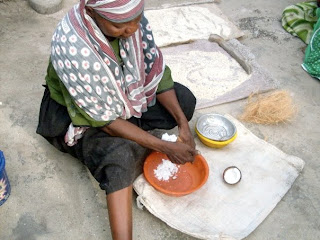But despite her motivation and business sense, Latifah's food stall would never have gotten off the ground without a small micro loan from an international investor. This loan and the business workshops that taught her how to start and run a small business enabled her to become financially self-sufficient. Latifah is now able to fully support her family and she has become a responsible and active member of her community.
Research has shown that when a woman is given the opportunity to become financially independent it has far reaching effects on her dependants and on her community. Women tend to allocate much more of their income to basic needs like better nutrition, housing, healthcare and education…. not only for themselves and their children, but also to make these opportunities available to their friends and neighbors.
WomenTeachingWomen focuses much of its work on finding new ways to empower women… allowing them to use their skills to start entrepreneurial ventures. But it can’t be stressed enough that empowerment is not just about economics. Financial independence causes a dramatic positive change in how women perceive themselves and how their families and communities see them.
Halima was another woman who participated in the WTW business workshop in Tanzania. After years of struggling to support her seven children by working as a seamstress in Stonetown, Halima got a small loan to buy her own sewing machine. This enabled her to expand her sewing business and now she is planning to rent space in a large hotel to sell the dresses she designs. She is also using some of the leadership skills she learned during the workshops to start a Women’s Craft Cooperative in her village.
Poor women are not only focused on investing in opportunities for their own income and growth but also on managing life events and reducing their vulnerability when emergencies happen. They take their responsibility to their families and communities very seriously. The stories of Latifah and Halima are not unique. Women who receive micro loans and business training emerge from poverty and bring their families and communities with them.





No comments:
Post a Comment